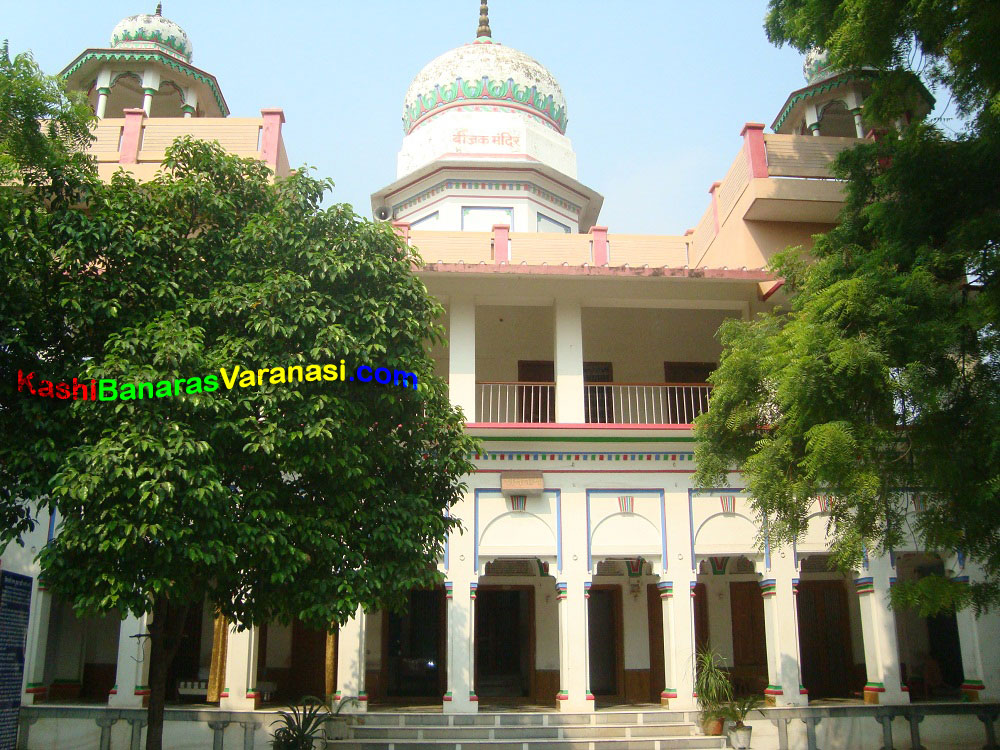Varanasi, also known as Banaras, is a city that is wrapped in traditions, beauty and culture. Lying on the banks of the sacred river Ganga, it is one of the oldest cities in the world and has been a sacred destination for Hindus for many years. It has a unique spiritual and religious energy which can be felt all over the city. Varanasi is famous for its ghats along the river Ganga. Each ghat has its own story and significance. Varanasi’s culture is unique, vibrant and alive, and the beauty of the ghats is truly unmatchable. As both sunrise and sunset paint the sky in varying shades of orange, pink and yellow, you can enjoy the beautiful scene of the ghats and the sacred river.
This ancient and vibrant city attracts several visitors every day. Subah-e-Banaras is an experience unlike any other. As you explore its winding alleys, you will be mesmerised by the many stories of faith and culture that come alive in this mesmerizing city. Everywhere you look, there is something to behold, from colorful toys and silk saris for sale at the market to the beautiful chants of gurus echoing through the air. Subah-e-Banaras is truly a sight to behold and an experience one is never likely to forget.
Subah-e-Banaras: A Glimpse of Morning in the Mystic City

A team of government officials came up with the idea for Subah-e-Banaras on Assi Ghat in Varanasi. The Government of Uttar Pradesh started this unique programme called Subah-e-Banaras. It was started in 2014 to magnify the beauty of the ancient city of Varanasi. Shri Pranjal Yadav, who was the city’s District Magistrate, Shri Vishak G, who was in charge of development in Varanasi, and Dr. Ratnesh Verma, who was in charge of the Regional Cultural Centre, made up the group.
The programme gives people the chance to take charge and work together to put on cultural events and spiritually-charged practises. It has become an interesting place to visit in Varanasi. Subah-e-Banaras is an expression to capture the unique beauty and mystique of the ancient Indian city of Varanasi. The Kashi’s Subah-e-Banaras tour is the ideal tour for those who wish to observe the history, culture, and traditions of the ancient city of Varanasi.
Witnessing the Radiance of Subah-e-Banaras
The phrase “Subah-e-Banaras and Shaam-e-Awadh” means that “a morning in Benaras and an evening in Lucknow” are the two most beautiful things to see in the world. A morning in Varanasi is full of life, light, and spirituality. Vedic chanting, music, and yoga are used to keep the beauty of nature alive. Subah-e-Banaras is an occurrence that has been said to help people become more aware of the universe and their inner beings.
The Ganga Aarti is performed for duration of forty-five minutes during the Subah-e-Banaras. During the aarti, worship is offered not only to the sacred river Ganga but also to the deity of the Sun. It takes place at Assi Ghat. This experience is an emotion. Anyone who’s been there knows how charming the Subah-e-Banaras is. It is an experience, a deep immersion that allows you to feel the timeless beauty of this everlasting city. It is a spiritual trip into oneself that revives the soul that already exists within you. The experiences offered by Subah-e-Banaras are more than just activities; rather, they capture the very essence of the historic city.
Tourists often take a boat ride on the River Ganga early in the morning. People often believe that the morning is the most peaceful time of the day. During this moment, Subah-e-Banaras genuinely enlightens you to the connection that exists between the God and the natural world. At this event, you can really feel the spiritual energy of Varanasi.
Exploring Subah-e-Banaras

Every morning, Subah-e-Banaras takes place at Assi Ghat. The Ghat is cleaned up for the Ganga Aarti, and chairs are set up for people who want to watch. The chairs near the stage can be used by people who arrive early. If not, people will sit on the stairs. Less people are there due to early morning.
You can watch the whole Aarti and listen to the morning ragas. A wise plan has been made for when different activities and rites will happen. The ritual starts with the recitation of verses or Yajna from the Vedas. After that comes the Ganga Aarti. A respect is paid to the earth, water, fire, sky, and wind, which are the five basic elements. Hindu folklore says that the Yajna is done to bring peace to the world by honoring the five elements of the earth.
After the Aarti, classical music is played, sometimes by young artists and sometimes by old experts. Hindustani classical music has many styles, and Benaras Gharana is one of them. Most of the time, songs and ragas from the Benaras Gharana are played. Kirtans are religious songs that are played on a variety of instruments, such as the harmonium and the tabla. Yoga comes next, and then breathing and meditation come at the end. Also, yoga is done outside in the fresh air so that people can bond with nature.
The yoga poses are chosen carefully and changed every day so that a person can stay in good physical and mental state. After yoga, tourists and locals can take a ride on the River Ganga in a Subah-e-Banaras-Boat. It makes your whole body and soul feel better, and you should go at least once in your life. Usually, the pogram ends at 7.30 AM. You will enjoy viewing the rituals that are conducted every morning at Varanasi Ghats while taking part in this cultural show, which is a mixture of musical or dance performance.
Experiencing Mornings in Banaras – A Blessing
Every Ghat along the Ganga River in Varanasi has a spiritual feel to it, but Assi Ghat has a spiritual vibe that is hard to explain. Even though it is dark, the orange and yellow flames burn brightly, making the environment lively. As the bells ring, chants can be heard across the river. Even though the Arati at Dashashwamedh Ghat in the evening is a sight to see, the Aarti at Assi Ghat in the morning is both unique and extraordinary. From the banks of the Ganges, you are surrounded by a beauty that is truly unparalleled. The sunrise in Varanasi is a sight to behold and captures the true essence of this mystical city.
At the morning, you’ll see people taking baths or performing rituals. Black-headed Gulls spend their time on the river. There are boats where people can buy bird food. When a boat throws food into the water, birds come from everywhere to gather around it. When the sun came out, the houses near the ghats made beautiful reflections in the river. When the sun light strikes the ancient structures, ashrams, and other sites that are located along the river side in the morning, they appear to be as colourful as a rainbow.
In the morning, there is a mix of astrologers, yogis, sadhus, and saints who do their daily rituals. Taking part in the Subah-e-Banaras programme is a unique and real way to learn about Varanasi’s spiritual culture. As the sun rises, the sky slowly changes colours, adding one more star to the holy feeling.
Timing of the Incredible Program (Subah-e-Banaras)
The program of Subah-e-Banaras is organised on all days. Timing may be varying according to season as well as special festivals. In summer one can witness Subah-e-Banaras at 05:00 AM to 07:00 AM. While in winters the timing is 05:40 AM – 07:30 AM. However, there are no fees to get in or to attend the ghat aarti. Also, there is no rush for the Subah-e-Banaras, so you can get there right before the event starts. Subah-e-Banaras is an experience not to be missed. The sights and sounds of the morning in Banaras will stay with you forever.
How to Reach Assi Ghat
The Subah-e-Banaras program is organised at Assi Ghat which is located in Shivala, Varanasi, Uttar Pradesh. There are different modes available to reach the destination. The more comfortable way to reach this ghat is through auto rickshaws.
By Airways: The closest airport to Assi Ghat is the Lal Bahadur Shastri International Airport, which is about 30 km away. The airport has good connections to a number of different places and towns in India, making your journey easy. After you leave the airport, you will need to take public transportation, like a taxi or a bus, to get to your final location.
By Railways: You can easily get to Assi Ghat from either the Manduadih Railway Station or the Varanasi Junction. Assi Ghat is about 6.2 km from Varanasi Junction and 5.5 km from Banaras station. After you get off the train, you’ll need to use public transportation like cars, auto rickshaws, or ola cabs to get to the final spot.
By Roadways: Depending on where you are, you may be able to get to Assi Ghat by a road network that is maintained properly and linked to major national highways. On this path, you can always get an auto or a rickshaw.

